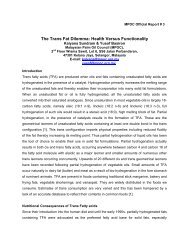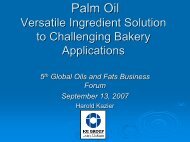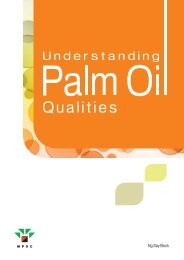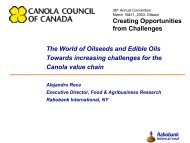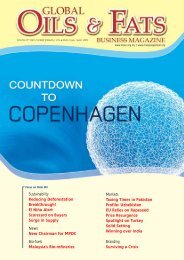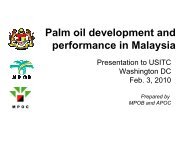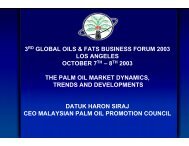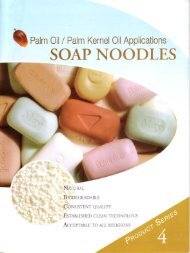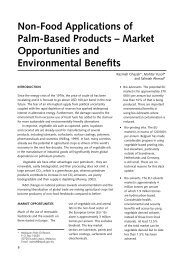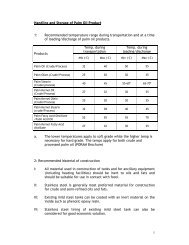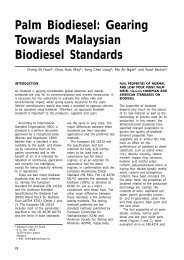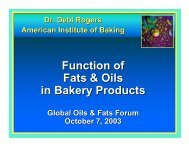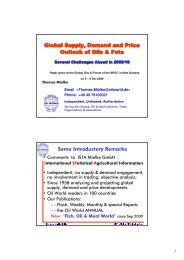Create successful ePaper yourself
Turn your PDF publications into a flip-book with our unique Google optimized e-Paper software.
contributing further employment opportunities and reduction ofunder-employment in the rural farm sector.Land development has been instrumental in the growth oftownships like Serting, Jengka and Muadzam Shah in addition tostimulating the expansion of many towns in rural areas.Poverty eradicationIn lifting families out of poverty, Felda has made an importantcontribution to one of the main goals of the New EconomicPolicy. The settlers’ current monthly income of RM1,386(US$355) for oil palm and RM3,485 (US$893) for rubber is farabove the national poverty line of RM529 (US$139).Social stabilityWith the opening of inaccessible areas of the interior in Grik(Perak), Gua Musang (Kelantan) and Raub and Triang (Pahang) –previously hotbeds of communist activity – the influence ofsubversive elements on the rural population has been containedand a measure of stability and peace achieved. Currently, all theseplaces are thriving with social and business activities that benefita significant section of the population.The emphasis of the Entrepreneur Development Programme ison entrepreneur development, agro-based industries, the ‘OneRegion, One Industry’ model and the Modern Malaysian Project.Financial assistance is given in the form of soft loans of up toRM150,000 per settler to build production infrastructure and forbusiness-related training. The goal is to increase the number ofsettlers in non-farm activities with an earning capacity of RM600for workers and RM3,000 for the entrepreneur. Currently, about38% of the settlers are involved in such activities.The Felda Investment Co-operative (FIC) was created in 1980to encourage savings among settlers. With more than RM750million in the members’ fund and RM120 million in revenue, theFIC has grown into an avenue for alternative investment. Morethan 90% of its capital is subscribed by settlers and the rest byemployees of the Felda Group.Since its inception, the FIC has been highly successful insupplementing settlers’ income by paying out an annual dividendof between 12-15%. The New Income Model is envisaged toboost monthly income to RM2,500 comprising farm, non-farmand investment earnings.Human capitalThere is an increasing awareness of the importance of humancapital as a key factor for sustainable economic developmentand successful social transformation. In this respect, Felda hasconducted many programmes to expand the pool of educatedand skilled workers – it has trained settlers’ dependents invarious educational and technical fields at certificate and diplomalevels, while the Felda Foundation has provided educationalgrants and scholarships, as well as adopted schools.Non-farm strategySince prices of commodities fluctuate with market conditions,settlers cannot depend solely on farm income. As a cushion,Felda introduced non-farm activities to transform the settlersinto an entrepreneurial community.Challenges aheadAlmost half of the settlers are now above the age of 60. In thenext decade, almost 60% will be above 61 years old. At issue,therefore, are problems relating to aging and succession.As they age, it becomes necessary for settlers to hire farmworkers, which reduces their own income. There is also theproblem of identifying successors as not many of their childrenare interested in taking over the holdings. Many educated youthshave left for jobs and better prospects in urban centres. Incertain areas, Felda manages these holdings when thesettlers are no longer able to work.GLOBAL OILS & FATS BUSINESS MAGAZINE • VOL.5 ISSUE 1, 20089



